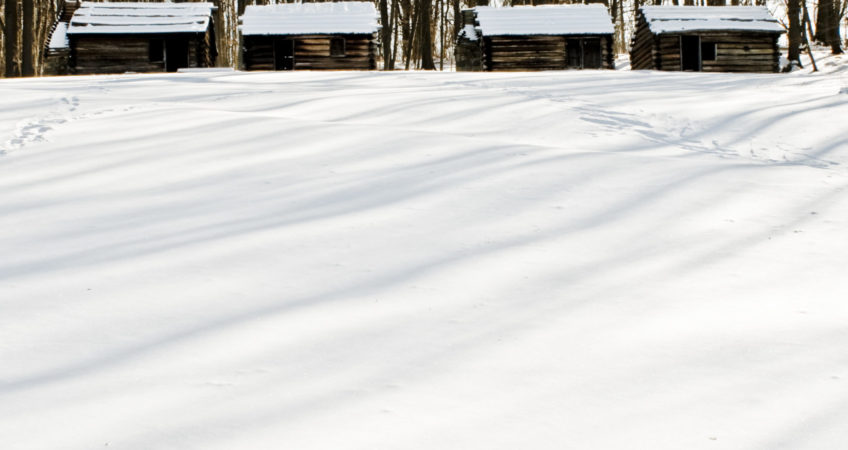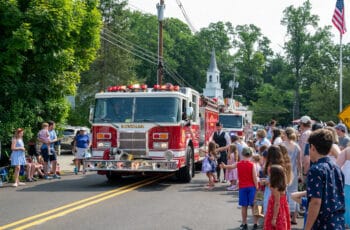Why Morris County History is Important Today:
Second Morristown Winter Encampment of 1779-80- by Carol Barkin

Morristown has long been known as the “Military Capital of the Revolution.” Not once, but twice, General George Washington and the Continental Army set up winter camp in and around Morristown. This month marks the 240th anniversary of the second winter encampment, which lasted from December 1, 1779 until June 23, 1780.
General Washington, his staff and guards billeted at the mansion of Militia Colonel Jacob Ford, Jr. where his host was Theodosia Ford, widow of the Colonel who had died in 1777. Lt. Col. Alexander Hamilton stayed at the mansion; he was the youngest of Washington’s five aide-de-camps.
Visitors to Washington Headquarters that winter included Martha Washington, the French Ambassador, the Marquis de Lafayette, and a three-member committee from the Continental Congress. Most notably, with the arrival of Lafayette on May 10, Washington received the news that support would be coming from the French in the form of ships, arms, soldiers and money. It was an important turning point for Washington and the army.

Accompanying Washington to Morristown were 10,000 Continental Army soldiers from Connecticut, New York, Pennsylvania, Delaware, New Jersey, Massachusetts, Maryland and Canada. At Jockey Hollow, south of Morristown, they built a “log house city.” They cleared 2,000 acres of trees and built 1,200 log huts, replicas of which can be seen today at Morristown National Historical Park at Jockey Hollow.
This winter is believed to have been the worst of the century, and perhaps of all time. It’s known in the history books as “the hard winter.” Supply lines could not break through to support the troops and 100 soldiers perished. Food and clothing were in short supply. Officers looked the other way as soldiers left the camp to forage on their own for food.
“At one time it snowed the greater part of four days successively, and there fell nearly as many feet deep of snow, and here was the keystone of the arch of starvation. We were absolutely, literally starved. I do solemnly declare that I did not put a single morsel of victuals into my mouth for four days and as many nights, except a little black birch bark which I gnawed off a stick of wood, if that can be called victuals. I saw several of the men roast their old shoes and eat them”. (Private Joseph Plumb Martin-age 19)
With appropriate winter clothing and boots, and a full belly, we suggest a winter visit to Jockey Hollow. As you hike the trails or up to the soldiers’ huts, or just stand quietly in the forest, imagine what it must have been like for the men camped there during the “hard winter” of 1779-80.

The Jockey Hollow roads, grounds and trails are open every day from 8 am to sunset. The Ford Mansion and Washington’s Headquarters Museum in Morristown are closed due to COVID. www.nps.gov/morr





